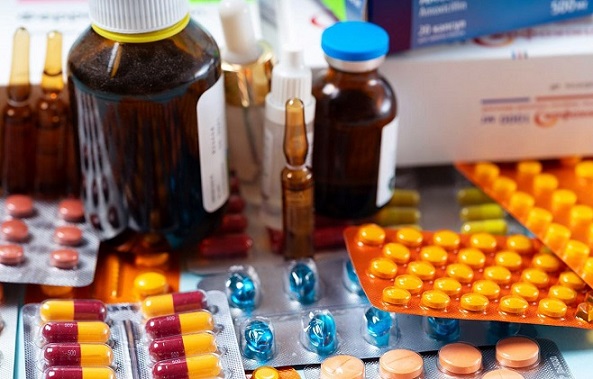Nikhil Prasad Fact checked by:Thailand Medical News Team Oct 09, 2025 4 months, 4 days, 20 hours, 50 minutes ago
Thailand Hospital News: Major reform aims to lower medicine costs for patients
A major change is underway in Thailand’s healthcare sector as more than 350 private hospitals have agreed to join a new policy that allows patients to buy prescribed medicines outside of hospital pharmacies. The move, spearheaded by the Department of Internal Trade (DIT) under the Ministry of Commerce, is designed to give patients more freedom, transparency, and cost-saving options in accessing essential drugs. This
Thailand Hospital News report highlights that the initiative could dramatically reduce healthcare expenses nationwide and weaken the long-standing dominance of hospital pharmacies that often sell medicines at inflated prices.
 Thai Private Hospitals Back Cheaper Drug Options
Thai Private Hospitals Back Cheaper Drug Options
Under this new system, patients who visit a private hospital can request a prescription from their doctor and choose to purchase their medication from an external pharmacy instead of the hospital’s own dispensary. Doctors will issue a prescription during the appointment, and patients can then decide where to fill it. Officials expect this policy to empower consumers and encourage competition among pharmacies to offer fairer prices.
More than 350 hospitals joining nationwide
A total of 354 private hospitals across Thailand have confirmed participation in this “Happy Body, Happy Wallet” initiative. The program includes some of the country’s largest healthcare networks, such as Bangkok Dusit Medical Services (BDMS), Thonburi Healthcare Group (THG), Paolo Hospital Group, BPK Hospital Group, Vibhavadi Hospital, and other private facilities across Bangkok and regional cities. The combined participation of these networks ensures that a significant majority of private hospital patients in Thailand will benefit from the scheme.
The DIT estimates that once fully implemented, the program could save Thai citizens around 32.4 billion baht every year in medication costs. Around 90 percent of commonly prescribed drugs — mainly those for chronic, non-urgent conditions like hypertension, diabetes, high cholesterol, and gastrointestinal diseases — will be included. However, medicines for critical or complex conditions, such as cancer treatments, organ transplants, or advanced cardiovascular care, will continue to be dispensed only by hospital pharmacies to ensure safety and proper medical monitoring.
Government oversight and pharmacy cooperation
To make the policy practical, the Department of Internal Trade is working with the Pharmacy Council of Thailand and the Pharmacy Association to create safety and quality standards for all participating pharmacies. With over 20,000 pharmacies across the country — and approximately 93 percent of them staffed by full-time licensed pharmacists — Thailand’s existing pharmacy infrastructure is well-positioned to support the transition. Officials are also developing verification systems to prevent counterfeit or unapproved drugs from entering the supply chain.
Participating hosp
itals must also ensure that their medical records, prescriptions, and billing systems integrate smoothly with external pharmacy networks. Each prescription issued will be properly documented and traceable, ensuring both accountability and continuity of care.
Support and concerns from the public
The initiative has received praise from consumer protection groups and healthcare advocates, who have long criticized private hospitals for high drug markups. Patients often pay two to three times more for the same medication compared to retail pharmacy prices. The new policy will allow patients to compare prices and make informed choices. However, some healthcare professionals have expressed concerns about maintaining drug safety and preventing prescription errors if patients buy from multiple sources.
There are also logistical concerns in rural provinces where the number of licensed pharmacies is limited. In such areas, hospitals may remain the main medicine providers until the network expands further. Nonetheless, officials believe that the program will gradually improve accessibility, affordability, and competition across the healthcare market.
A step toward affordable healthcare for all
The “Happy Body, Happy Wallet” policy represents one of the most significant shifts in Thailand’s private healthcare landscape in recent years. By letting patients choose where to purchase their prescribed medicines, it introduces a more transparent and consumer-friendly model. The government aims not only to cut costs but also to build trust between patients, doctors, and pharmacies.
Conclusion
If implemented carefully with strong oversight, this program could mark the beginning of a fairer healthcare system in Thailand. It has the potential to reduce medicine costs dramatically, promote transparency, and help millions of Thais afford long-term treatment for chronic illnesses. Still, the challenge will lie in maintaining strict quality control and coordination between hospitals and pharmacies. Success will depend on cooperation from all sides—doctors, pharmacists, patients, and regulators—to ensure safety and fairness.
For the latest
Thailand Hospital News, keep on logging to Thailand Medical News
